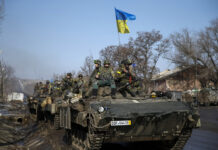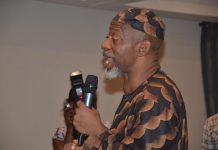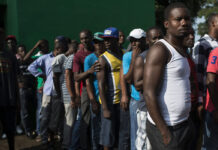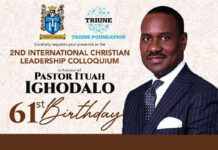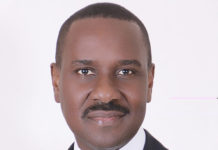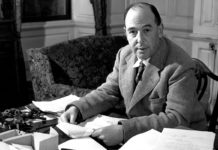Mandela in the Movies: 10 Films About Apartheid
He would have been 100 years this July. Mandela or ‘Madiba’ as he was fondly called in South Africa remains a much loved and inspirational figure.
Perhaps no other historical figure could have seen his screen self played so favourably, and by such distinguished actors: Sidney Poitier, Morgan Freeman, Danny Glover, Terrence Howard, Idris Elba, Dennis Haysbert and, in a supporting role in the 2009 Endgame, Clarke Peters. In that TV movie, the main role, a member of the African National Congress negotiating Mandela’s release, is taken by Chiwetel Ejiofor, the Nigerian born British star of 12 Years a Slave. Below are ten films made about apartheid and or Mandela.
 Mandela: Long Walk to Freedom, 2013 is based on South African President Nelson Mandela’s autobiography of the same name, which chronicles his early life, coming of age, education and 27 years in prison before becoming President and working to rebuild the country’s once segregated society. Idris Elba stars as Nelson Mandela and Naomie Harris stars as Winnie Madikizela-Mandela. The film premiered in November 2013.
Mandela: Long Walk to Freedom, 2013 is based on South African President Nelson Mandela’s autobiography of the same name, which chronicles his early life, coming of age, education and 27 years in prison before becoming President and working to rebuild the country’s once segregated society. Idris Elba stars as Nelson Mandela and Naomie Harris stars as Winnie Madikizela-Mandela. The film premiered in November 2013.
 Winnie Mandela, 2011 is a 2011 drama film adaptation of Anne Marie du Preez Bezrob’s biography Winnie Mandela: A Life. The film is directed by Darrell Roodt, and stars Jennifer Hudson, Terrence Howard, Wendy Crewson, and Elias Koteas. The movie follows the life of Winnie Madikizela-Mandela played by Jennifer Hudson, from her strict rural upbringing by a father disappointed she was not born a boy, to her giving up the chance to study in America in order to remain in South Africa where she felt more needed, through her husband Nelson Mandela’s (played by Terrence Howard) imprisonment. She then faces continuous harassment by the security police, banishment to a small Free State town, betrayal by friends and allies, and more than a year in solitary confinement. Upon her release, she continues her husband’s activism against apartheid and, after his release from prison, suffers divorce due to her infidelity and political pressures. She also faces accusations of violence and murder and in the end, must own up to her actions in court, while many still remain loyal to her because of her fight against apartheid
Winnie Mandela, 2011 is a 2011 drama film adaptation of Anne Marie du Preez Bezrob’s biography Winnie Mandela: A Life. The film is directed by Darrell Roodt, and stars Jennifer Hudson, Terrence Howard, Wendy Crewson, and Elias Koteas. The movie follows the life of Winnie Madikizela-Mandela played by Jennifer Hudson, from her strict rural upbringing by a father disappointed she was not born a boy, to her giving up the chance to study in America in order to remain in South Africa where she felt more needed, through her husband Nelson Mandela’s (played by Terrence Howard) imprisonment. She then faces continuous harassment by the security police, banishment to a small Free State town, betrayal by friends and allies, and more than a year in solitary confinement. Upon her release, she continues her husband’s activism against apartheid and, after his release from prison, suffers divorce due to her infidelity and political pressures. She also faces accusations of violence and murder and in the end, must own up to her actions in court, while many still remain loyal to her because of her fight against apartheid
 Invictus, 2009 is a 2009 biographical sports drama film directed by Clint Eastwood and starring Morgan Freeman and Matt Damon. The story is based on the John Carlin book Playing the Enemy: Nelson Mandela and the Game That Made a Nation about the events in South Africa before and during the 1995 Rugby World Cup, which was hosted in that country following the dismantling of apartheid. Freeman and Damon play, respectively, South African President Nelson Mandela and François Pienaar, the captain of the South Africa rugby union team, the Springboks. The film earned Academy Award nominations for Freeman (Best Actor) and Damon (Best Supporting Actor). While attending a game between the Springboks, the country’s rugby union team, and England, Mandela recognises that the blacks in the stadium are cheering for England, as the mostly-white Springboks represent prejudice and apartheid in their minds; he remarks that he did the same while imprisoned on Robben Island. Knowing that South Africa is set to host the 1995 Rugby World Cup in one year’s time, Mandela persuades a meeting of the newly black-dominated South African Sports Committee to support the Springboks. He then meets with the captain of the Springboks rugby team, François Pienaar (Matt Damon), and implies that a Springboks victory in the World Cup will unite and inspire the nation. Mandela also shares with François a British poem, “Invictus”, that had inspired him during his time in prison.
Invictus, 2009 is a 2009 biographical sports drama film directed by Clint Eastwood and starring Morgan Freeman and Matt Damon. The story is based on the John Carlin book Playing the Enemy: Nelson Mandela and the Game That Made a Nation about the events in South Africa before and during the 1995 Rugby World Cup, which was hosted in that country following the dismantling of apartheid. Freeman and Damon play, respectively, South African President Nelson Mandela and François Pienaar, the captain of the South Africa rugby union team, the Springboks. The film earned Academy Award nominations for Freeman (Best Actor) and Damon (Best Supporting Actor). While attending a game between the Springboks, the country’s rugby union team, and England, Mandela recognises that the blacks in the stadium are cheering for England, as the mostly-white Springboks represent prejudice and apartheid in their minds; he remarks that he did the same while imprisoned on Robben Island. Knowing that South Africa is set to host the 1995 Rugby World Cup in one year’s time, Mandela persuades a meeting of the newly black-dominated South African Sports Committee to support the Springboks. He then meets with the captain of the Springboks rugby team, François Pienaar (Matt Damon), and implies that a Springboks victory in the World Cup will unite and inspire the nation. Mandela also shares with François a British poem, “Invictus”, that had inspired him during his time in prison.
 District 9, 2009 is a South African independent science fiction action/thriller film directed by Neill Blomkamp and was nominated for four Academy Awards in 2010: Best Picture, Best Adapted Screenplay, Best Visual Effects, and Best Editing. The story, adapted from Alive in Joburg, a 2005 short film directed by Blomkamp and produced by Sharlto Copley and Simon Hansen, depicts humanity, xenophobia, and social segregation. The title and premise of District 9 were inspired by events in District Six, Cape Town during the apartheid era.
District 9, 2009 is a South African independent science fiction action/thriller film directed by Neill Blomkamp and was nominated for four Academy Awards in 2010: Best Picture, Best Adapted Screenplay, Best Visual Effects, and Best Editing. The story, adapted from Alive in Joburg, a 2005 short film directed by Blomkamp and produced by Sharlto Copley and Simon Hansen, depicts humanity, xenophobia, and social segregation. The title and premise of District 9 were inspired by events in District Six, Cape Town during the apartheid era.
 Goodbye Bafana, 2007 is a drama film, directed by Bille August, about the relationship between Nelson Mandela (played by Dennis Haysbert) and James Gregory (played by Joseph Fiennes), his censor officer and prison guard, based on Gregory’s book Goodbye Bafana: Nelson Mandela, My Prisoner, My Friend. The movie also explores the relationship of James Gregory and his wife as their life changes while Mandela is under Gregory’s watch.
Goodbye Bafana, 2007 is a drama film, directed by Bille August, about the relationship between Nelson Mandela (played by Dennis Haysbert) and James Gregory (played by Joseph Fiennes), his censor officer and prison guard, based on Gregory’s book Goodbye Bafana: Nelson Mandela, My Prisoner, My Friend. The movie also explores the relationship of James Gregory and his wife as their life changes while Mandela is under Gregory’s watch.
 Mandela and de Klerk, 1997 is a television film directed by Joseph Sargent. It stars Sidney Poitier as Mandela and Michael Caine as De Klerk. The story begins in 1964, as Mandela is sentenced to life imprisonment for revolutionary activities against the white minority government, which practices apartheid policies. Years quickly pass. The South African government becomes isolated as the U.S. and other countries enact trade embargoes. President P.W. Botha (played by Gerry Maritz) takes a hard line, but a party change in leadership puts the more moderate F.W. de Klerk in charge. de Klerk negotiates with Mandela and his African National Congress party, resulting in a relatively peaceful transition to majority (black) rule.
Mandela and de Klerk, 1997 is a television film directed by Joseph Sargent. It stars Sidney Poitier as Mandela and Michael Caine as De Klerk. The story begins in 1964, as Mandela is sentenced to life imprisonment for revolutionary activities against the white minority government, which practices apartheid policies. Years quickly pass. The South African government becomes isolated as the U.S. and other countries enact trade embargoes. President P.W. Botha (played by Gerry Maritz) takes a hard line, but a party change in leadership puts the more moderate F.W. de Klerk in charge. de Klerk negotiates with Mandela and his African National Congress party, resulting in a relatively peaceful transition to majority (black) rule.
 A Dry White Season, 1989 –In 1976, in South Africa during Apartheid, Ben Du Toit (played by Donald Sutherland) is a South African school teacher. Ben has been insulated all his life from the horrors of apartheid in his native South Africa. Perhaps he really didn’t want to know. When the son of his black gardener is arrested and beaten as a result of a schoolboy protest in Soweto, at first he imagines the police must have had their reasons. However, the boy is picked up again, and this time he doesn’t come back. Ben promises his servant that he will look into the incident, and discovers that the boy was killed simply to gratify the violent urges of Captain Stolz (played by Jurgen Prochnow), a “special branch” policeman. At long last he has gotten a glimpse into the truly arbitrary and violent nature of the system he has so long benefitted from, and he hires Ian Mackenzie (played by Marlon Brando) to prosecute the killer. It is a foregone conclusion that Stolz will not be punished, but Mackenzie rises to new heights of withering sarcasm and irony in the courtroom. This situation turns Ben into a radical firebrand, which alienates him from his white friends and neighbours, as well as members of his family
A Dry White Season, 1989 –In 1976, in South Africa during Apartheid, Ben Du Toit (played by Donald Sutherland) is a South African school teacher. Ben has been insulated all his life from the horrors of apartheid in his native South Africa. Perhaps he really didn’t want to know. When the son of his black gardener is arrested and beaten as a result of a schoolboy protest in Soweto, at first he imagines the police must have had their reasons. However, the boy is picked up again, and this time he doesn’t come back. Ben promises his servant that he will look into the incident, and discovers that the boy was killed simply to gratify the violent urges of Captain Stolz (played by Jurgen Prochnow), a “special branch” policeman. At long last he has gotten a glimpse into the truly arbitrary and violent nature of the system he has so long benefitted from, and he hires Ian Mackenzie (played by Marlon Brando) to prosecute the killer. It is a foregone conclusion that Stolz will not be punished, but Mackenzie rises to new heights of withering sarcasm and irony in the courtroom. This situation turns Ben into a radical firebrand, which alienates him from his white friends and neighbours, as well as members of his family
 A World Apart, 1988 is an anti-Apartheid drama, written by Shawn Slovo and directed by Chris Menges. It is based on the lives of Slovo’s parents, Ruth First and Joe Slovo. Set in Johannesburg in 1963, the film examines the abrupt ending of 13-year-old Molly’s blithe childhood when her father, a member of the South African Communist Party, is sent into exile. Ostracised by her peers, Molly draws closer to her mother as she attempts to further the campaign against apartheid. Their relationship is challenged by hardship, political intimidation, and the older woman’s eventual arrest. The film title references both the gap between the mother and her teenage girl, who fails to grasp why their family is so fixated with events beyond their comfortable suburb, and another separating this world from that of South Africa’s poverty-stricken black townships. Essentially, the film is a tribute to Ruth First by her daughter and concludes in a moment of epiphany as Molly comes to terms with her mother’s activism and understands that she too must play a part in the struggle to protest racial injustice.
A World Apart, 1988 is an anti-Apartheid drama, written by Shawn Slovo and directed by Chris Menges. It is based on the lives of Slovo’s parents, Ruth First and Joe Slovo. Set in Johannesburg in 1963, the film examines the abrupt ending of 13-year-old Molly’s blithe childhood when her father, a member of the South African Communist Party, is sent into exile. Ostracised by her peers, Molly draws closer to her mother as she attempts to further the campaign against apartheid. Their relationship is challenged by hardship, political intimidation, and the older woman’s eventual arrest. The film title references both the gap between the mother and her teenage girl, who fails to grasp why their family is so fixated with events beyond their comfortable suburb, and another separating this world from that of South Africa’s poverty-stricken black townships. Essentially, the film is a tribute to Ruth First by her daughter and concludes in a moment of epiphany as Molly comes to terms with her mother’s activism and understands that she too must play a part in the struggle to protest racial injustice.
 Mandela, 1987is a 1987 HBO television film directed by Philip Saville. The film stars Danny Glover as Nelson Mandela and Alfre Woodard as his wife Winnie. Described as a “biographical drama,” the made-for-TV Mandela is the story of South African human-rights advocate Nelson Mandela, who at the time this film was made was in the 25th year of a prison sentence. Covering the years 1948 to 1987, the film traces Mandela’s matriculation from young lawyer to fervent anti-Apartheid political activist. At first a proponent of nonviolence, Mandela is radicalised after the Sharpeville massacre of 1960. Thrown in jail by the white-dominated government in 1962, Mandela passes the cudgel to his wife Winnie (played by Alfre Woodard), who perseveres despite constant persecution from the powers-that-be.
Mandela, 1987is a 1987 HBO television film directed by Philip Saville. The film stars Danny Glover as Nelson Mandela and Alfre Woodard as his wife Winnie. Described as a “biographical drama,” the made-for-TV Mandela is the story of South African human-rights advocate Nelson Mandela, who at the time this film was made was in the 25th year of a prison sentence. Covering the years 1948 to 1987, the film traces Mandela’s matriculation from young lawyer to fervent anti-Apartheid political activist. At first a proponent of nonviolence, Mandela is radicalised after the Sharpeville massacre of 1960. Thrown in jail by the white-dominated government in 1962, Mandela passes the cudgel to his wife Winnie (played by Alfre Woodard), who perseveres despite constant persecution from the powers-that-be.
 Cry Freedom, 1987 is a British drama film directed by Richard Attenborough, set in the late 1970s, during the apartheid era of South Africa. The screenplay was written by John Briley based on a pair of books by journalist Donald Woods. The film centres on the real-life events involving black activist Steve Biko and his friend Donald Woods, who initially finds him destructive, and attempts to understand his way of life. Donald Woods is chief editor of the liberal newspaper Daily Dispatch in South Africa. He has written several editorials critical of the views of Steve Biko. But after having met him for the first time, he changes his opinion. They meet several times, and this means that Woods and his family get attention from the security police. When Steve Biko dies in police custody, he writes a book about Biko. The only way to get it published is for Woods himself to illegally escape the country. Denzel Washington stars as Biko, while Kevin Kline portrays Woods. Cry Freedom delves into the ideas of discrimination, political corruption, and the repercussions of violence. It was nominated for multiple awards including Academy Award nominations for Best Actor in a Supporting Role, Best Original Score, and Best Original Song.
Cry Freedom, 1987 is a British drama film directed by Richard Attenborough, set in the late 1970s, during the apartheid era of South Africa. The screenplay was written by John Briley based on a pair of books by journalist Donald Woods. The film centres on the real-life events involving black activist Steve Biko and his friend Donald Woods, who initially finds him destructive, and attempts to understand his way of life. Donald Woods is chief editor of the liberal newspaper Daily Dispatch in South Africa. He has written several editorials critical of the views of Steve Biko. But after having met him for the first time, he changes his opinion. They meet several times, and this means that Woods and his family get attention from the security police. When Steve Biko dies in police custody, he writes a book about Biko. The only way to get it published is for Woods himself to illegally escape the country. Denzel Washington stars as Biko, while Kevin Kline portrays Woods. Cry Freedom delves into the ideas of discrimination, political corruption, and the repercussions of violence. It was nominated for multiple awards including Academy Award nominations for Best Actor in a Supporting Role, Best Original Score, and Best Original Song.
